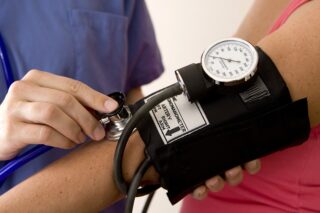
Atrial fibrillation is a condition that involves a very particular type of irregular heartbeat – something that could lead to blood clots, an increased risk of stroke, or even heart failure if left unchecked. There are also a number of different medical conditions that can affect AFib, such as migraines. Learn more about the other conditions that may affect AFib, and how to prevent them from happening.
The Cause and Effect of Atrial Fibrillation
One of the major conditions that can have negative effects on Atrial fibrillation is an overactive thyroid, otherwise known as hyperthyroidism. Your body’s ability to produce the thyroid hormone has a profound effect on the function of your heart and even if you aren’t already dealing with AFib, this could actually cause you to develop it. While it’s true that this is not the most common cause of atrial fibrillation, it does both increase your heart rate and cardiac output – placing a large amount of stress on the heart as a result.
A recent Danish study also confirmed what many have long suspected: migraines also put a patient at an increased risk of AFib, along with other problems like blood clots. Interestingly, researchers believe that this has nothing to do with genetics – there are no shared gene variations between those who suffer migraines and those dealing with heart disease.
A separate study also confirmed that people with coeliac disease are also at an increased risk of atrial fibrillation. AFib is statistically more common both before and after a coeliac disease diagnoses, thanks largely to the presence of a chronic inflammation and the shared risk factors that these two conditions contain.
Finally, asthma can also have a negative effect on AFib if you’re not careful – but not necessarily for the reason you may think. Asthma itself doesn’t exacerbate atrial fibrillation, but many of the medications used to treat asthma can absolutely place additional strain on the heart, affecting any other conditions (like AFib) that one is experiencing.
Factors like these help underline the importance of seeing an electrophysiologist (EP) doctor in your area on a regular basis. Conditions like atrial fibrillation rarely affect your body in a vacuum – oftentimes specific problems create other, more serious problems and only the helpful expertise of a professional can help guarantee that you’re taking the best steps to stay safe and healthy at all times.
If you or a loved one are living with a heart rhythm disorder such as atrial fibrillation, contact Heart Rhythm Consultants, P.A. Dr. Dilip Mathew is Board Certified in Cardiology & Cardiac Electrophysiology and has been serving patients in Sarasota and surrounding cities including Venice, Tampa and Sun City Center for over a decade.



